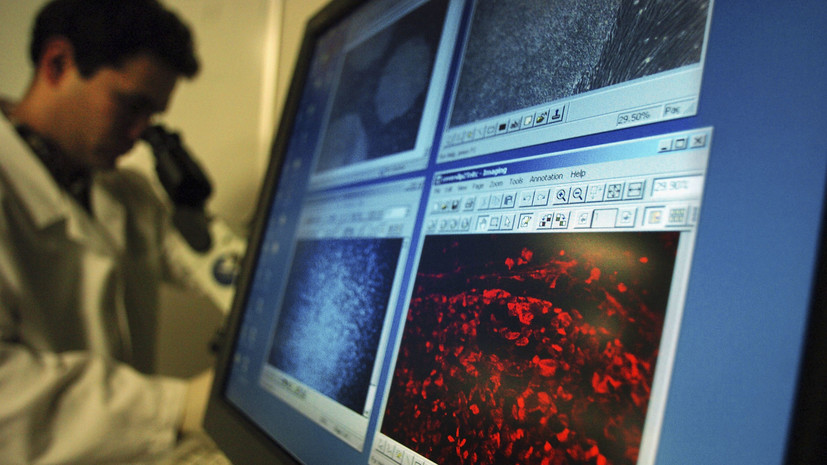Scientists of the Russian National Research Medical University named after N.I.
Pirogova and NUST MISIS, together with their Canadian colleagues, found out that stem cells contribute to the recovery of the brain after a stroke.
This is reported in the journal Frontiers in Neuroscience.
The study used reprogrammed human neural and mesenchymal stem cells. According to scientists, all types of cells in the brain are formed from neural stem cells during neurogenesis, which hypothetically makes them promising candidates for the treatment of cerebral infarction. In addition, both neural and mesenchymal stem cells are able to secrete various substances that stimulate the regeneration of brain tissue.
“In the study, reprogrammed neural stem and mesenchymal cells were injected intra-arterially in rodents in the trial 24 hours after simulated ischemic stroke.
This method of transplantation made it possible to deliver cells directly to the brain, bypassing filtering parenchymal organs such as the lungs, liver and spleen, "an employee of the Department of Neurology, Neurosurgery and Medical Genetics of the Russian National Research Medical University named after
N.I.
Pirogova Daria Namestnikova.
According to Namestnikova and her colleagues, the study used a new technology for in vivo imaging of transplanted cells.
Cells were injected intra-arterially under real-time MRI control.
The researchers observed the movement of cells through the vessels of the brain from the first minutes of their introduction.
As the scientists noted, passing through the blood supply system of the brain, most of the neural and mesenchymal stem cells accumulated around the zone of cerebral infarction - the "ischemic nucleus".
“The transplanted cells do not stay in the brain tissue for more than three days, but the researchers observed a positive therapeutic effect within two weeks after the transplantation,” Maxim Abakumov, co-author of the study, head of the NUST MISIS laboratory of biomedical nanomaterials, said in a commentary to RT.
So the authors concluded that stem cells changed their activity and initiated the regeneration process.
At the same time, the restoration of brain functions continued after the introduction of stem cells into the body, the researchers note.
According to scientists, such experimental therapy can be used in clinical practice to treat the consequences of ischemic stroke in patients.

